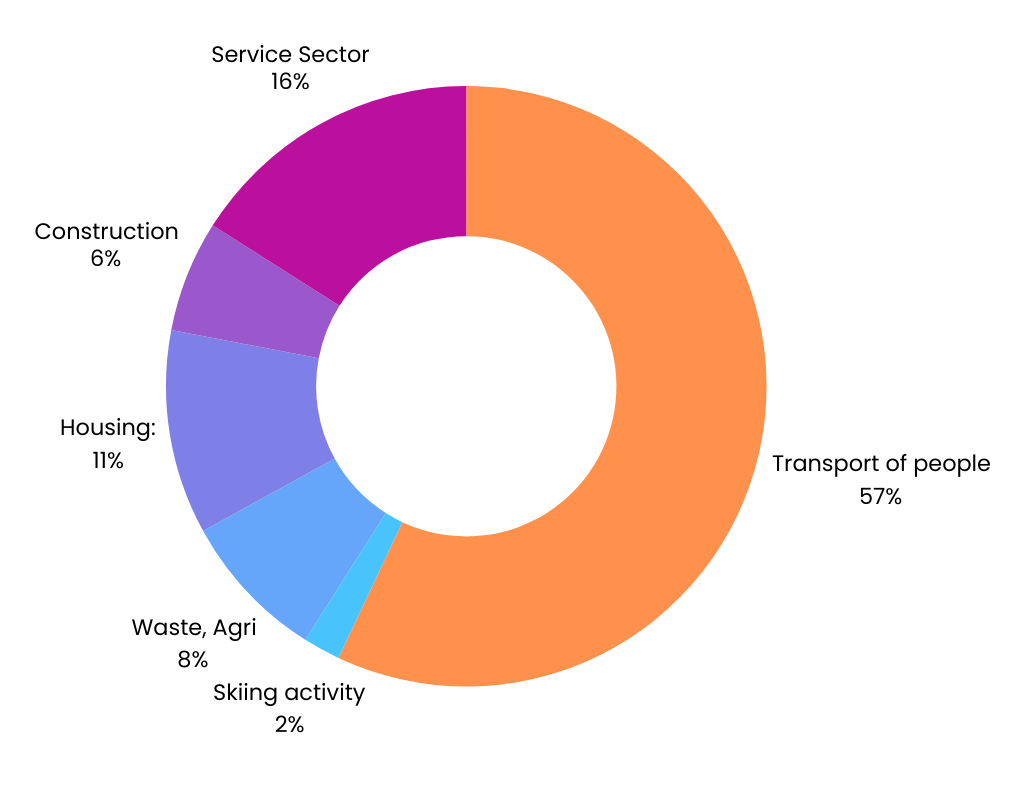- hello@chalets-lesgets.com
- +33 450 79 75 22
- See Summer Site

Over the past years, climate change's effects have become increasingly obvious in winter holiday destinations. Les Gets, and most of the Alps' ski resorts are facing shorter winter seasons and continuously rising snow lines. A study by Eurac Research reveals a noticeable decrease in snow days across the Alps over the past 50 years, with declines ranging from 10% to 35%.
As ski communities strive to provide enjoyable holiday experiences despite climate change, the environmental impact of winter sports tourism is currently being examined. Critics point out that ski slopes, lifts, and other infrastructure take up large areas of land, which can destroy natural habitats. They also highlight that systems such as snow cannons use a lot of water and electricity, adding to the environmental concerns. Recently, many resorts are shifting toward renewable energy sources, such as solar power and hydroelectric power, to reduce their carbon footprint.
In Les Gets, many actions have been taken over the past few years at the village and ski area level, in winter and summer. And since 2000, a wood-fired heating system using re-claimed wood has heated 12 municipal buildings via a heating network over a kilometer long. You can find out more about what Les Gets is doing for the environment here.
Although skiing itself contributes minimally to CO2 emissions, other factors of a ski holiday contribute a substantial share. The CO2 emissions for a typical ski holiday in Les Gets can be broken down as follows:

Source: montagneverte.org
Ski resorts increasingly recognise the importance of sustainable travel and encouraging guests to choose greener options. Many are implementing initiatives like carpooling incentives and electric vehicle charging stations, while also promoting discounts for travellers using public transport (find out more about The Alpin Express Pass here). Travelling by train can lead to discounts at local businesses, including ski rentals and lift passes. By altering how we travel to these beloved destinations, we can collectively contribute to a more sustainable winter holiday experience.
Les Gets remains a breathtaking location for winter sports, but it's crucial to acknowledge the environmental impact associated with travel and resort operations. By making conscious choices, such as opting for train travel or carpooling, we can help preserve the beauty of the Alps for future generations. Skiing should continue to be a source of joy, balanced with a commitment to sustainability.